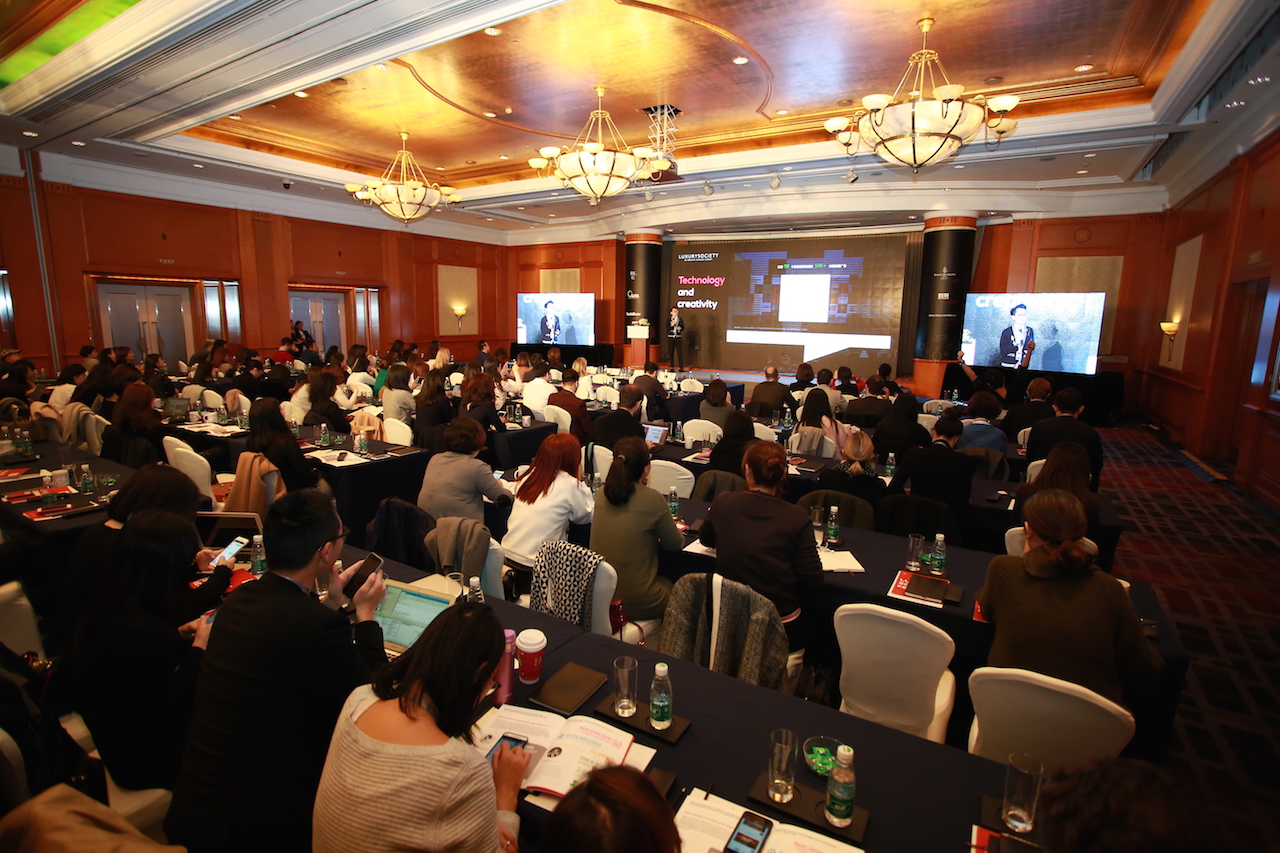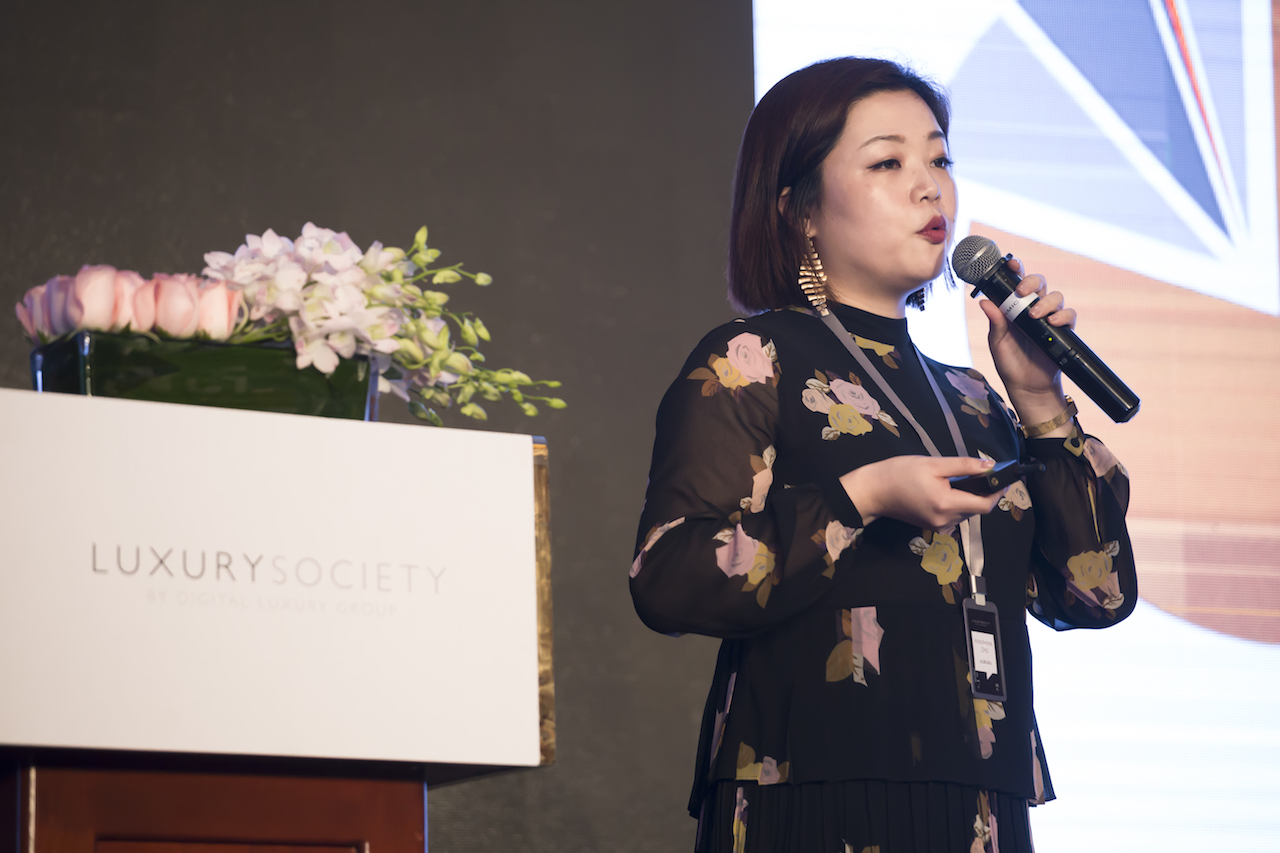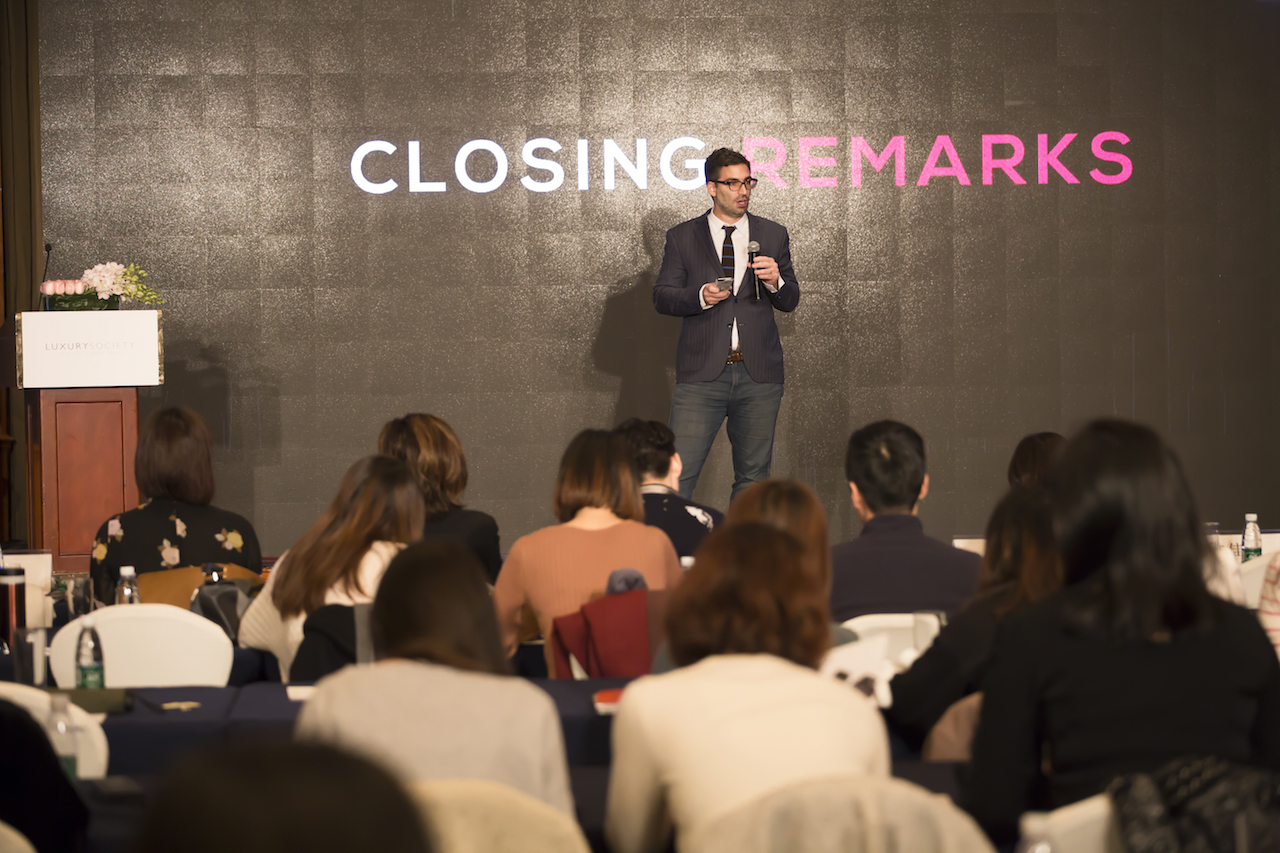
Marking its third chapter in Shanghai, the Luxury Society Keynote 2017 offered attendees its best line-up of speakers and presentations yet.
Held in Shanghai on November 29 with an audience including representatives from most of the top luxury brands operating in China, the Luxury Society Keynote included presentations from all of China’s major technology companies – Alibaba, Tencent, Baidu and Weibo – as well as speakers drawing on the experiences of brands such as Four Seasons Hotels and Resorts, Swarovski and Montblanc. Here are the top five takeaways from an afternoon packed with information about successful digital activation in the China market.

Image credit: Luxury Society
Everyone is talking about millennials, but they are not easily defined
If we take the definition of millennial as being anyone born between 1980 and the mid 1990s, this represents a massive group of 300 million consumers in China and 75 million in the U.S. What we do know about this cohort is that they are found online and they want to feel different from their peers. It’s important to go deeper into their aspirations and allow them to feel part of an experience, rather than simply someone buying or owning something. The key word is authenticity, if brands develop more authenticity, they are more likely to get millennials to listen to them in a marketplace crowded with messages.
Luxury Brands will have more opportunities to bridge online and offline
Chinese search giant Baidu believes the computer age, which has already passed through the PC era into the mobile era, has already reached, or is about to reach, the era of artificial intelligence. As such, consumers will be surrounded by smart devices in their everyday lives – including in-store mirrors that can recommend beauty products after examining colouring and face shape from a person’s reflection. Baidu’s major AI technology innovation to date is a facial recognition system with almost 100 percent accuracy.

Image credit: Luxury Society. Image: Persephonie Zhu | Luxury Business Solutions Director, Tmall, Alibaba Group
Take Aim at Your Target
A presentation from Jocelyn Phi, vice president of hotel marketing in the Asia Pacific region for Four Seasons Hotels and Resorts encouraged marketers to think strategically – and sometimes be prepared to go against the grain – when it comes to mixing paid and unpaid advertising. The key to success is in continuing the process of targeting and A/B testing.
China’s Biggest Digital Players Keep Innovating
More options are becoming available through ecommerce marketplaces such as Alibaba for high-end brands to offer their goods to a targeted, luxury-friendly audience through app-in-app innovations such as the Luxury Pavilion. Meanwhile, WeChat’s advertising platform is moving fast and increasing the number of marketing solutions available to brands. It’s up to good marketers to find the right ways of using these multiple solutions to the best effect for their brand’s needs.

Image credit: Luxury Society. Image: David Sadigh | Founder & CEO at Digital Luxury Group (DLG)
Credibility can be monetized for KOLs
Yu Xiao Ge left her post as the Executive Editor-in-Chief of Harper’s Bazaar China to build online fashion communities iDS Big Eyes and iSNOB, in the process becoming one of China’s top fashion KOLs. She has retained her independence and resisted entering into too many advertising partnerships with brands, and rather decided to leverage her credibility by opening her own WeChat ecommerce store, BuyBuyBuy, which sold more than 20-million-yuan worth of product in only its third month in operation. At a time when KOL marketing budgets are being diffused and KOL identities are so easily blurred together, credibility and independence are key tools to monetizing popularity and building a long-term business strategy.
Cover Image credit: Luxury Society

